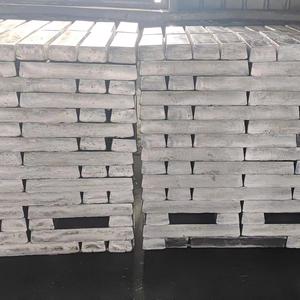Magnesium is a lightweight metal commonly used to make a variety of products, from aerospace technology to automotive manufacturing. When you are purchasing magnesium metal ingots, the importance of knowing how to judge their quality cannot be underestimated. In this article, we’ll explore how to tell if a magnesium metal ingot is good or not and what are the key factors in choosing high-quality magnesium metal.

How to judge the quality of magnesium metal ingots?
1. Appearance inspection
First of all, visual inspection is the simplest way to judge the quality of magnesium metal ingots. Here are some appearance characteristics to help you judge:
1).Surface Smoothness: A high-quality magnesium metal ingot should usually have a smooth, uniform surface without depressions, cracks or obvious irregular textures. An uneven or rough surface may indicate a problem with the preparation process.
2). Color: Magnesium metal is usually silvery white. If the color of the ingot is abnormal or uneven, it may mean the presence of impurities.
3). Weight and size: Make sure the size and weight of the ingot meet the specifications. Different applications require different sizes and weights of magnesium metal ingots, so make sure the one you choose meets your needs.
2. Chemical composition analysis
Conducting chemical composition analysis is another critical step in ensuring the quality of magnesium metal ingots. This can be done through laboratory testing to ensure that the purity and content of the metal are up to the required standards. Here are some common factors to consider:
1. Purity: High-quality magnesium metal should have a high degree of purity, usually more than 99%. The level of impurities should be very low as impurities may degrade the properties of the metal.
2).Alloying elements: If you need to alloy magnesium metal, make sure it contains the required alloying elements in the correct amounts. Different alloys affect the properties and uses of the metal.
3. Crystal structure and texture
The crystal structure and texture of magnesium metal can also provide important information about its quality. High-quality magnesium metal usually has a uniform crystalline structure, while low-quality magnesium metal may have an irregular structure. In addition, texture is also an important consideration, as different textures may affect the mechanical properties of the metal.
4. Density and hardness
The density and hardness of magnesium metal are also key parameters to judge its quality. Density is the ratio of magnesium metal’s mass to volume, and hardness is the material’s ability to resist deformation and scratches. High-quality magnesium metal usually has the appropriate density and hardness, depending on its alloy composition and heat treatment process.
5. Anti-corrosion performance
Magnesium metal is prone to oxidation in air, so its corrosion resistance is also a key quality consideration. High-quality magnesium metal should have good corrosion resistance and can be used in a variety of applications without corroding rapidly.
6. Manufacturing process and supplier reputation
Finally, it is also important to understand the manufacturing process and supplier reputation of magnesium metal ingots. Choosing a reputable manufacturer can provide higher quality products and ensure that the products comply with relevant quality standards and regulations.
The above is "How to judge the quality of magnesium metal ingots". To judge the quality of magnesium metal ingots, multiple factors such as appearance, chemical composition, crystal structure, density, hardness, corrosion resistance and supplier reputation need to be comprehensively considered. Before purchasing magnesium metal, it is best to consult with a professional to ensure you choose the right material to meet your specific needs. Also, follow safety measures to ensure you stay safe when handling magnesium metal.